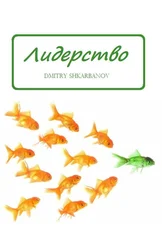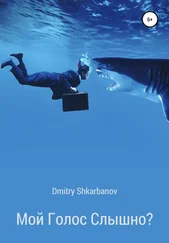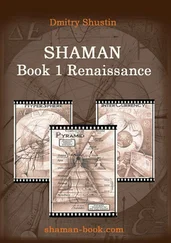Travelling through Nagornaya Station, you always had to trust to luck, the place was so capricious and inconsistent. Sometimes it let travellers pass, merely frightening them with the bloody stains on its walls and fluted steel columns – as if someone had tried to escape by climbing up them. But the reception it gave the next group, literally only minutes later, would make the survivors think the loss of only half their comrades was a victory. It could never be sated. It had no favourites. It defied observation and study. For the inhabitants of all the stations around it, Nagornaya embodied the whim of fate. And it was the greatest ordeal of all for men who set out on the journey from Sebastopol to the Circle and back.
‘Nagornaya couldn’t have done it all on its own…’ Ahmed was superstitious, like many of the Sebastopolites, and he always spoke about this station as a living creature.
Homer didn’t need to ask what he meant – he had also been wondering how Nagornaya Station could have swallowed up the convoys that had disappeared and all the scouts sent out to search for them. ‘All sorts of things have happened, but for so many men to disappear at once,’ he agreed, ‘it would have choked on them .’
‘Don’t talk like that!’ Ahmed exclaimed, clicking his tongue angrily at Homer and flinging his hands up in alarm – or perhaps he was holding back the slap that the old man was obviously asking for. ‘It won’t choke on you, that’s for sure!’
Homer let that go and reined in his resentment. He didn’t believe Nagornaya could hear what they said and hold it against them. Not at this distance, anyway. Superstition, it was sheer superstition! If you tried to pay homage to all the idols of the underworld, you were bound to fail, you couldn’t avoid offending someone. Homer had stopped worrying about that kind of thing long ago, but Ahmed thought differently. He pulled a set of prayer beads – made of blunt pistol bullets – out of the pocket of his uniform jacket pocket and started twirling the string of lead through his dirty hands and fluttering his lips, praying in his own language to atone for Homer’s offences against Nagornaya. But the station didn’t seem to understand him, or perhaps it was already too late for apologies.
Hunter detected something with his supernatural sense of smell and waved his gloved hand, killing the pace. He sank down slowly onto the ground. ‘There’s fog up there,’ he said curtly. ‘What’s that?’
Homer and Ahmed exchanged glances. They both understood what it meant: the hunt was on, and now they would need all their luck to reach the northern limits of Nagornaya alive.
‘How can I put it?’ Ahmed replied reluctantly. ‘It’s breathing.’
‘What is?’ the brigadier asked him coolly and shook his knapsack off his shoulders, evidently planning to select the appropriate calibre from his arsenal.
‘Nagornaya Station,’ said Ahmed, switching to a whisper.
‘We’ll see about that,’ Hunter said with a contemptuous, crooked grin.
But no, Homer had only imagined the brigadier’s mutilated face coming to life: it had remained as immobile as ever – the grin was only a trick of the light.
A hundred metres further on the other two saw it: a heavy white mist creeping over the ground towards them, first licking at their boots, then twining round their knees, then flooding the tunnel waist-high. It was as if they were slowly walking into a cold, hostile, ghostly sea, sinking deeper and deeper with every step they took across its deceptively sloping bottom, until they were totally submerged in its murky waters.
They couldn’t see a thing. The flashlight beams got stuck in this strange mist like flies in a cobweb: they forced their way a few steps forward, then ran out of strength, went limp and hung there in mid-air – feeble, submissive captives. Sounds were hard to make out, as if they were forcing their way through a feather mattress, and it even became harder to move, as if the team really was walking over a silty sea bed, not a line of railway sleepers.
It got harder to breathe too, but not because of the humidity – it was the unusual, tart aroma that had appeared in the air. The men felt reluctant to let it into their lungs, it made them feel as if they were drawing into themselves the breath of some huge, alien creature that had already extracted all the oxygen from the air and saturated it with poisonous exhalations.
To be on the safe side, Homer pulled his respirator back over his face. Hunter gave him a quick glance, then lowered his hand into the canvas bag hanging under his shoulder, tugged open a strap and slapped a new, rubber mask over his usual one. Ahmed was the only one left without a gas mask – he had either forgotten it in his haste or decided not to bother.
The brigadier froze again, pointing his tattered ear towards Nagornaya, but in the dense white murk he couldn’t make out the snatches of sound coming from the station clearly enough to assemble them into a complete picture. Something really massive seemed to tumble over with a crash, someone gave a long whoop on a note too low for a man – or for any kind of animal. There was a hysterical scraping of metal, as if a hand was tying one of the thick pipes running along the wall into a knot.
Hunter tossed his head, as if he were throwing off some kind of dirt that was sticking to it, and the short automatic pistol in his hand was replaced by a military Kalashnikov with twin clips and an under-barrel grenade launcher. ‘At last,’ he murmured to himself.
They reached the station without even realising it. Nagornaya was flooded with fog as thick as pig’s milk: gazing at it through the misted lenses of his gas mask, Homer felt like a scuba-diver who had swum into a sunken ocean liner.
The similarity was emphasised by the embossed panels decorating the walls: seagulls imprinted into metal by a crude, artless Soviet stamp. More than anything else they resembled the imprints of fossilised organisms exposed on the ruptured surfaces of rock strata. ‘Fossilisation – that’s the fate of man and his creations,’ Homer thought briefly. ‘But who’ll dig them up?’
The miasma filling the air around them was alive – it flowed and quivered. Sometimes patches of darkness condensed out of it – at first Homer thought he saw a mangled and twisted carriage or a rusty sentry box, and then it was the scaly body or head of some mythical monster. He was afraid even to imagine who might have occupied the crew’s quarters and settled into the first-class cabins in the decades that had passed since the shipwreck. He’d heard a lot about things that had happened at Nagornaya, but he’d never come face to face with…
‘There it is. Over there, on the right!’ yelled Ahmed, tugging the old man by the sleeve.
There was the muffled pop of a shot fired through a homemade silencer.
Homer swung round at a speed that was impossible with his rheumatism, but his blunted flashlight lit up nothing except a section of column faced with ribbed metal
‘Behind us! There, behind us!’ Ahmed fired a short burst, but his bullets merely crumbled the remnants of marble slabs that had once covered the walls of the station. Whatever features Ahmed had spotted in the trembling mirage, their owner had dissolved back into it unharmed.
‘He’s breathed too much of this stuff,’ thought Homer.
And then, out of the very corner of his eye, he saw something… Gigantic, hunched over – because the station’s fifteen-foot ceiling was too low for it – something unbelievably agile for its immense size, breaking out of the fog on the very boundary of visibility and swaying back in again before the old man could train his automatic on it.
Homer looked round helplessly for the brigadier. He was nowhere to be seen.
Читать дальше











